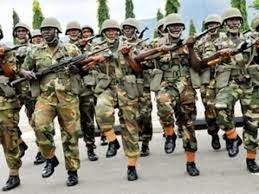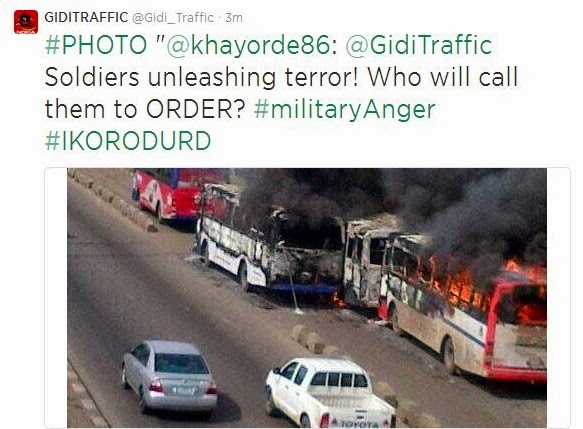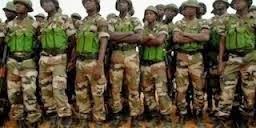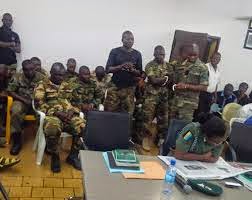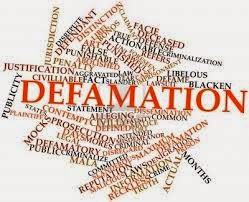
COPYRIGHT INFRINGEMENT AND PLAGIARISM
 |
| credits: slideshare.net |
With the recent brouhaha following Linda Ikeji’s blog being
temporarily shut down by Blogger, many writers/bloggers/online content marketers
are franticallypraying searching for information regarding copyright
infringement in order to ensurethe devil does not send a MrAyedee into
their lifethey don’t run fowl of the law and also have their blogs shut
down. While copyright laws regarding the internet are well established in
foreign jurisdictions, in Nigeriawe jus dey open eye, blogging just
blew up in Nigeria a little over 5 years ago. But you can always catch our blog
post on copyright
laws.
temporarily shut down by Blogger, many writers/bloggers/online content marketers
are frantically
infringement in order to ensure
their life
down. While copyright laws regarding the internet are well established in
foreign jurisdictions, in Nigeria
blew up in Nigeria a little over 5 years ago. But you can always catch our blog
post on copyright
laws.
People tend to get a little
protective of their stuff because there are many unscrupulous people out there
who take content and pass it off as their own. Having done all that hard work
with none of the credit is totally not cool!
protective of their stuff because there are many unscrupulous people out there
who take content and pass it off as their own. Having done all that hard work
with none of the credit is totally not cool!
Copyright
infringement occurs when any person uses any of your work – no matter how small
it is – for any of his/her personal benefits irrespective of whether or not he
gives you the attribution, unless that person has a written permission from you. Content could
be in many forms such as text, artwork, sound and video (including animations),
ideas, inventions or symbols. Once your work is published – irrespective of
whether on paper or digital media – you own the sole rights to: use the work;
allow reuse; allow derivatives and allow others make profit from your work. If you are
the copyright holder, it means that ONLY YOU are allowed to make copies
of the work and should you wish – others and only the ones to whom you give
written permission can use the work. At this point it is important to note that
the saying “because it’s posted on the
internet, then it’s free” is totally misleading and untrue.
infringement occurs when any person uses any of your work – no matter how small
it is – for any of his/her personal benefits irrespective of whether or not he
gives you the attribution, unless that person has a written permission from you. Content could
be in many forms such as text, artwork, sound and video (including animations),
ideas, inventions or symbols. Once your work is published – irrespective of
whether on paper or digital media – you own the sole rights to: use the work;
allow reuse; allow derivatives and allow others make profit from your work. If you are
the copyright holder, it means that ONLY YOU are allowed to make copies
of the work and should you wish – others and only the ones to whom you give
written permission can use the work. At this point it is important to note that
the saying “because it’s posted on the
internet, then it’s free” is totally misleading and untrue.
 |
| credits- dearauthor.com |
Plagiarism on the other hand is “the use of another’s
information, language, or writing, when done without proper acknowledgment of
the original source.” However, the critical element of it is the final part.
The one thing that ties all plagiarism together is going beyond merely
duplicating the work, but also not crediting the source and thus taking the
material for yourself. However, not all incidents of plagiarism are considered
copyright infringement. Plagiarizing works in the public domain, though
unethical, is not considered copyright infringement.
information, language, or writing, when done without proper acknowledgment of
the original source.” However, the critical element of it is the final part.
The one thing that ties all plagiarism together is going beyond merely
duplicating the work, but also not crediting the source and thus taking the
material for yourself. However, not all incidents of plagiarism are considered
copyright infringement. Plagiarizing works in the public domain, though
unethical, is not considered copyright infringement.
Plagiarism is an ethical concern that may have other elements
of intellectual property theft tied with it. Copyright infringement, on the
other hand, is illegal and carries with it potentially significant
consequences. Plagiarism can be avoided by providing attribution and giving credit,
copyright infringement cannot. So how can one be sure not to plagiarize or
infringe on another’s work? Simple:
of intellectual property theft tied with it. Copyright infringement, on the
other hand, is illegal and carries with it potentially significant
consequences. Plagiarism can be avoided by providing attribution and giving credit,
copyright infringement cannot. So how can one be sure not to plagiarize or
infringe on another’s work? Simple:
- If you took the photo or created the graphic and are not
subject to a Work For Hire agreement, then you own it. Taking another person’s
image or graphic and giving them a “shout out,” linkback, or any other type of
attribution does not negate copyright infringement. Copyright law gives the
copyright holder the right to decide where their work is published and maybe
they don’t want their work on your site, in your book, included in your
newsletter or distributed to your social media network.
-
Ask people for the rights to use their work, it is either
they say yes or no. It may be acceptable to use an image, as is, on your blog,
but you may not have the right to use that same image in a paid newsletter,
book, video or other type of work. Unless the image is in the public domain or
you are the copyright holder, you have to consider the use(s) granted by the
copyright holder or license. A copyright holder may be agreeable to certain
uses but not to others. Also when you take part of a person’s written/published
work, it is important that you write the reference properly in other to avoid
plagiarism allegations.
Adedunmade Onibokun
@adedunmade

